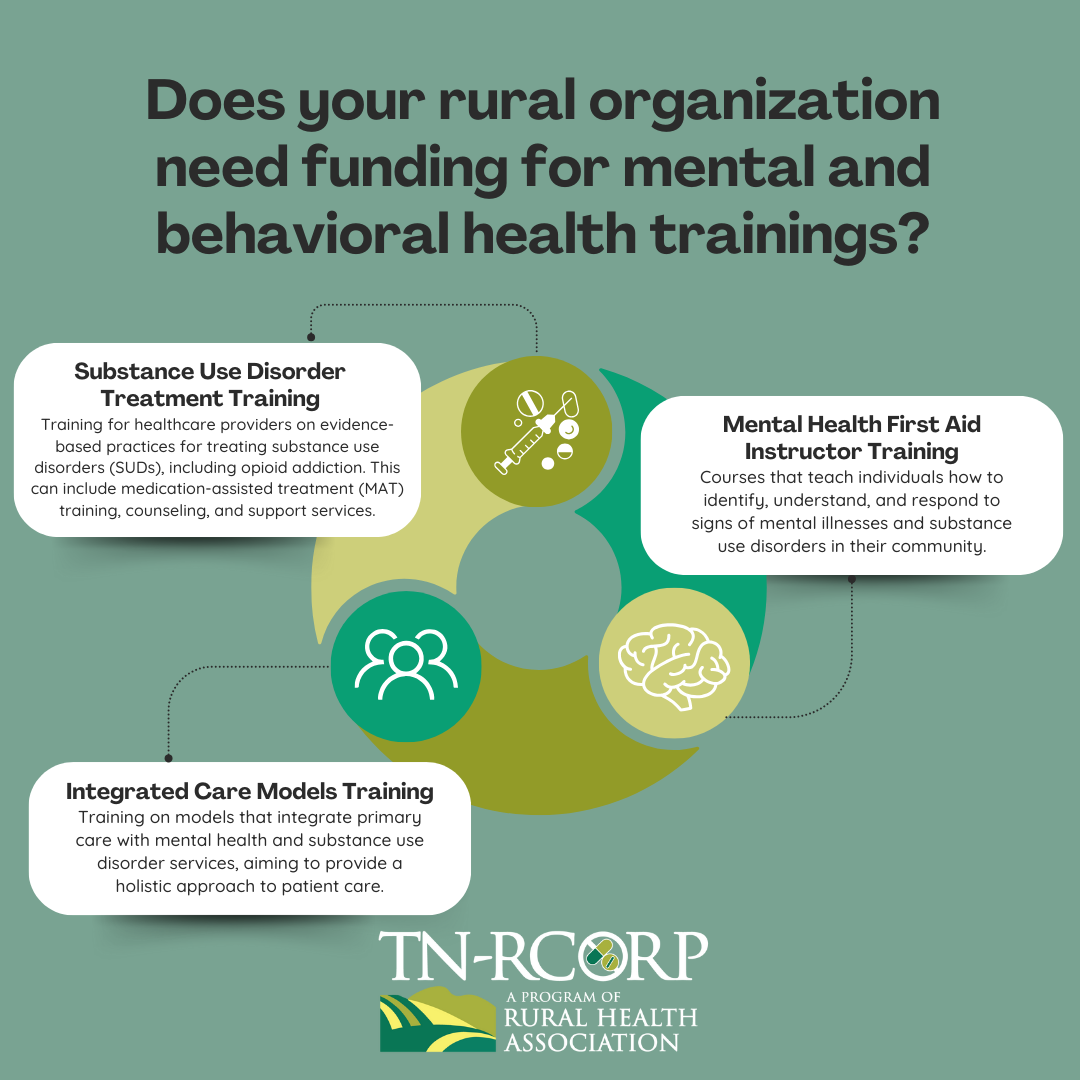 The Rural Health Association is offering funding for paraprofessional trainings benefiting mental and behavioral health for HRSA defined rural organizations. If your business is interested in training someone in your community or a staff member, please reach out to our RCORP director Jessica Rackley at [email protected]. Below you can find a list of trainings eligible for funding:
The Rural Health Association is offering funding for paraprofessional trainings benefiting mental and behavioral health for HRSA defined rural organizations. If your business is interested in training someone in your community or a staff member, please reach out to our RCORP director Jessica Rackley at [email protected]. Below you can find a list of trainings eligible for funding:
Substance Use Disorder Treatment Training: Training for healthcare providers on evidence-based practices for treating substance use disorders (SUDs), including opioid addiction. This can include medication-assisted treatment (MAT) training, counseling, and support services.
Mental Health First Aid Instructor training: Courses that teach individuals how to identify, understand, and respond to signs of mental illnesses and substance use disorders in their community.
Cultural Competency Training: Training for healthcare providers on how to effectively address and treat the unique needs of diverse rural populations, including understanding cultural differences, stigma, and barriers to accessing care.
Integrated Care Models Training: Training on models that integrate primary care with mental health and substance use disorder services, aiming to provide a holistic approach to patient care.
Stipends for Peer Support Specialist Certification: Training for individuals with lived experience of SUDs to become certified peer support specialists, offering guidance and support to others undergoing treatment and recovery.
Prevention Strategies Training: Training on implementing community-based strategies to prevent substance misuse and addiction, including education on the risks of opioid use and strategies to reduce prescription drug misuse.
Stigma Reduction Training: Programs aimed at reducing the stigma associated with mental health and substance use disorders, encouraging individuals to seek help and support.
Leadership and Program Development Training: training on program development, management, and sustainability.
 Have you submitted your nominations for the 2024 Annual Rural Health Awards? Each year the Rural Health Association of Tennessee recognizes individuals and groups of individuals from across the state of Tennessee who have dedicated themselves to the service of others within the field of rural healthcare.
Have you submitted your nominations for the 2024 Annual Rural Health Awards? Each year the Rural Health Association of Tennessee recognizes individuals and groups of individuals from across the state of Tennessee who have dedicated themselves to the service of others within the field of rural healthcare. 

 Juvenile Arthritis (JA) refers to a range of autoimmune and inflammatory conditions that can affect children under the age of 16. These diseases cause joint pain, swelling, and stiffness, and can impact a child’s growth and overall development. Unlike adult arthritis, which is often associated with wear and tear of the joints, JA is primarily an autoimmune condition where the body's immune system mistakenly attacks its own tissues. There are several types of juvenile arthritis, including juvenile idiopathic arthritis (JIA), juvenile dermatomyositis, juvenile lupus, and juvenile scleroderma, among others.
Juvenile Arthritis (JA) refers to a range of autoimmune and inflammatory conditions that can affect children under the age of 16. These diseases cause joint pain, swelling, and stiffness, and can impact a child’s growth and overall development. Unlike adult arthritis, which is often associated with wear and tear of the joints, JA is primarily an autoimmune condition where the body's immune system mistakenly attacks its own tissues. There are several types of juvenile arthritis, including juvenile idiopathic arthritis (JIA), juvenile dermatomyositis, juvenile lupus, and juvenile scleroderma, among others. Men's Health Month, observed every June, plays a crucial role in raising awareness about health issues affecting men and boys. This dedicated month serves as a pivotal time to encourage early detection and treatment of diseases more prevalent among men, such as heart disease, cancer, and mental health disorders. The aim is to foster health consciousness and encourage men to adopt healthier lifestyles. By focusing on preventive care and regular check-ups, Men’s Health Month seeks to reduce the gap in health outcomes between genders, given that men, statistically, are less likely to seek medical attention and more likely to suffer from serious health conditions at younger ages.
Men's Health Month, observed every June, plays a crucial role in raising awareness about health issues affecting men and boys. This dedicated month serves as a pivotal time to encourage early detection and treatment of diseases more prevalent among men, such as heart disease, cancer, and mental health disorders. The aim is to foster health consciousness and encourage men to adopt healthier lifestyles. By focusing on preventive care and regular check-ups, Men’s Health Month seeks to reduce the gap in health outcomes between genders, given that men, statistically, are less likely to seek medical attention and more likely to suffer from serious health conditions at younger ages. Skin Cancer Awareness Month, observed each May, is a crucial campaign aimed at educating the public about the dangers of skin cancer, the most common form of cancer in the United States. This month-long initiative is spearheaded by organizations such as the
Skin Cancer Awareness Month, observed each May, is a crucial campaign aimed at educating the public about the dangers of skin cancer, the most common form of cancer in the United States. This month-long initiative is spearheaded by organizations such as the  National Women's Health Week, observed annually in May, serves as a crucial reminder of the significance of women's well-being. It's a dedicated time for women of all ages to prioritize their health by scheduling check-ups, screenings, and engaging in healthy habits. This initiative aims to empower women to take control of their health, encouraging them to make informed decisions about their bodies and lifestyles.
National Women's Health Week, observed annually in May, serves as a crucial reminder of the significance of women's well-being. It's a dedicated time for women of all ages to prioritize their health by scheduling check-ups, screenings, and engaging in healthy habits. This initiative aims to empower women to take control of their health, encouraging them to make informed decisions about their bodies and lifestyles.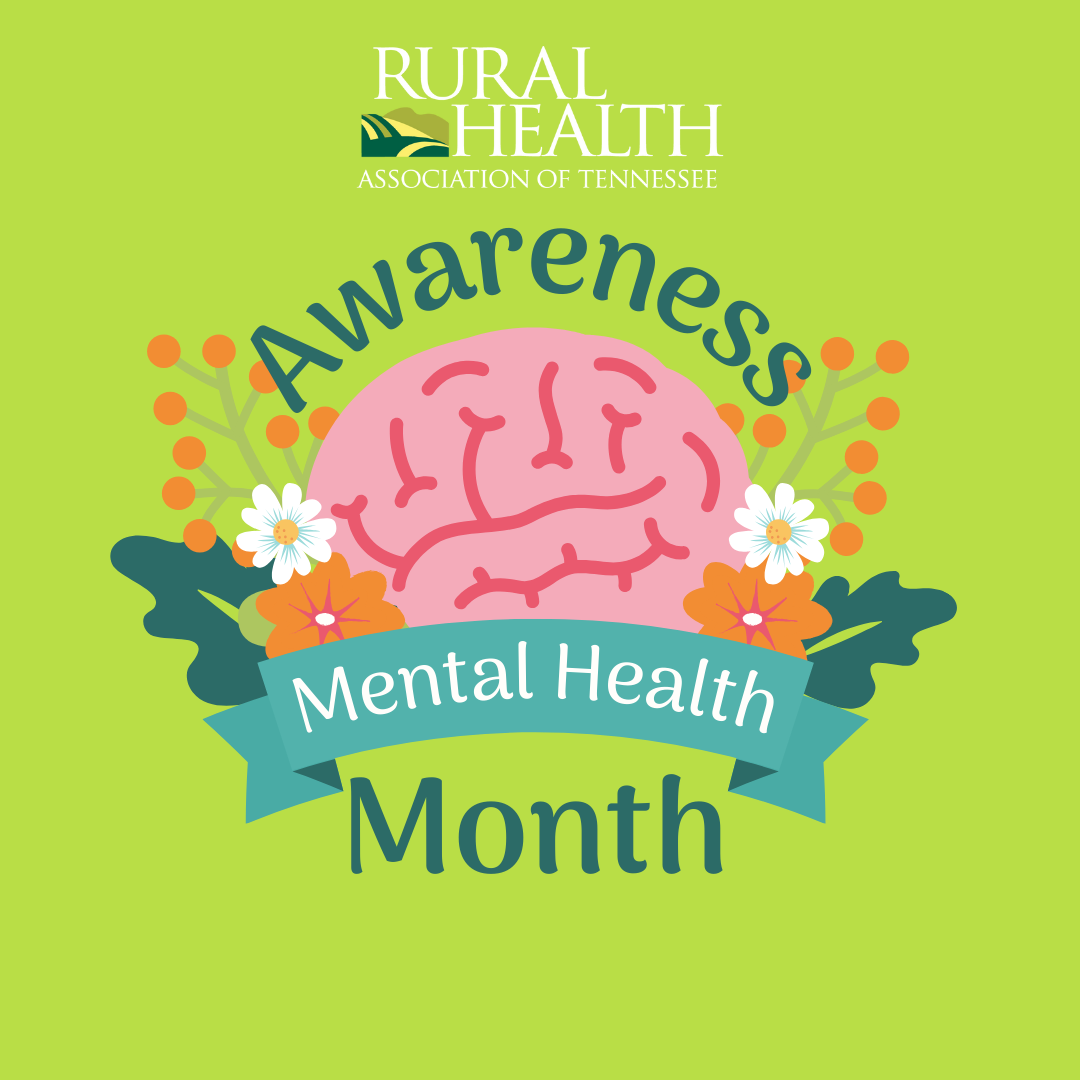 Mental Health Awareness Month, observed throughout May, serves as a crucial platform to educate, raise awareness, and reduce stigma surrounding mental health issues. It offers an opportunity for individuals, communities, and organizations to come together to promote understanding and support for those struggling with mental health challenges.
Mental Health Awareness Month, observed throughout May, serves as a crucial platform to educate, raise awareness, and reduce stigma surrounding mental health issues. It offers an opportunity for individuals, communities, and organizations to come together to promote understanding and support for those struggling with mental health challenges.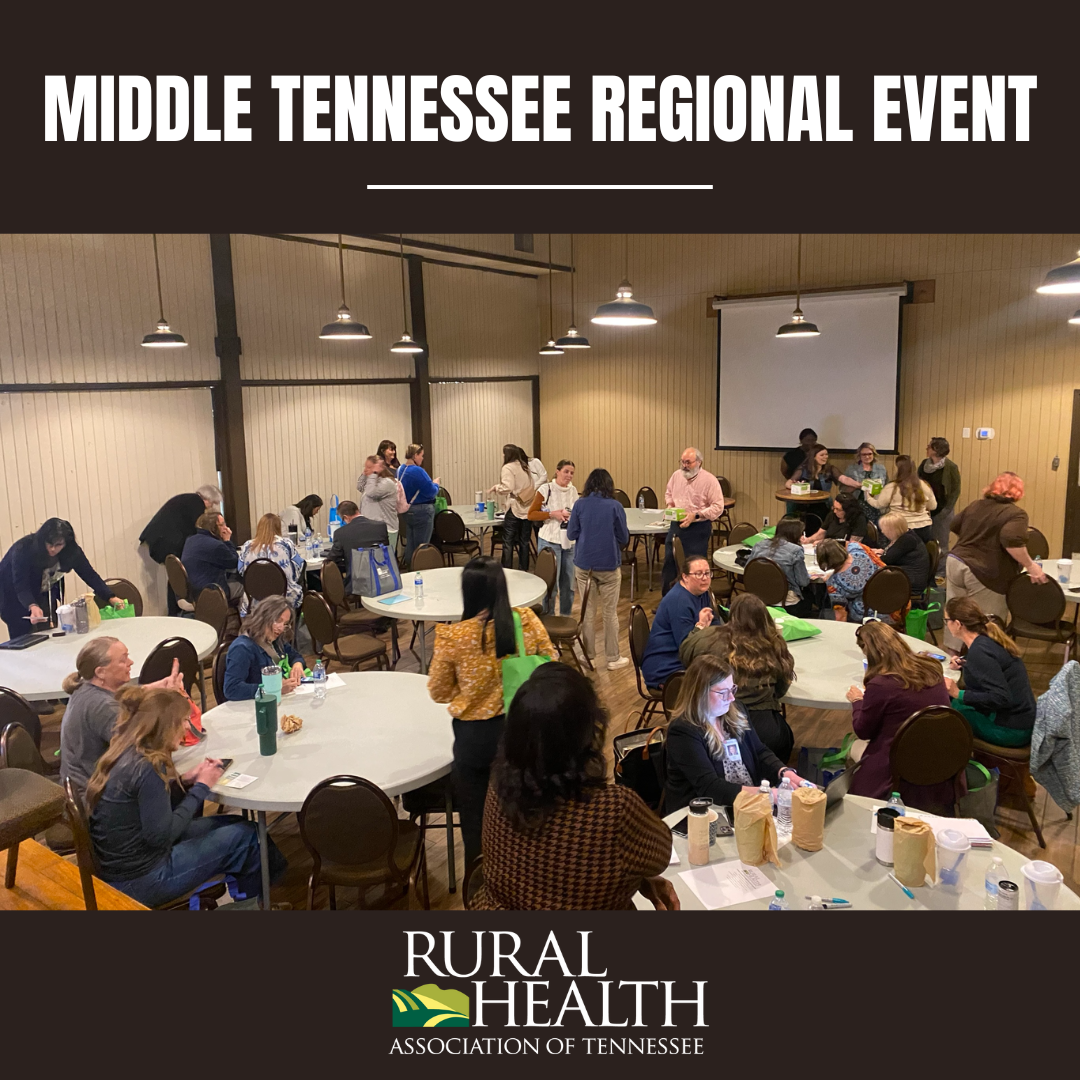 Tuesday, April 23rd, we had the opportunity to host our last regional event of the season at Fall Creek Falls State Park and see our middle region members. Members had the opportunity to h
Tuesday, April 23rd, we had the opportunity to host our last regional event of the season at Fall Creek Falls State Park and see our middle region members. Members had the opportunity to h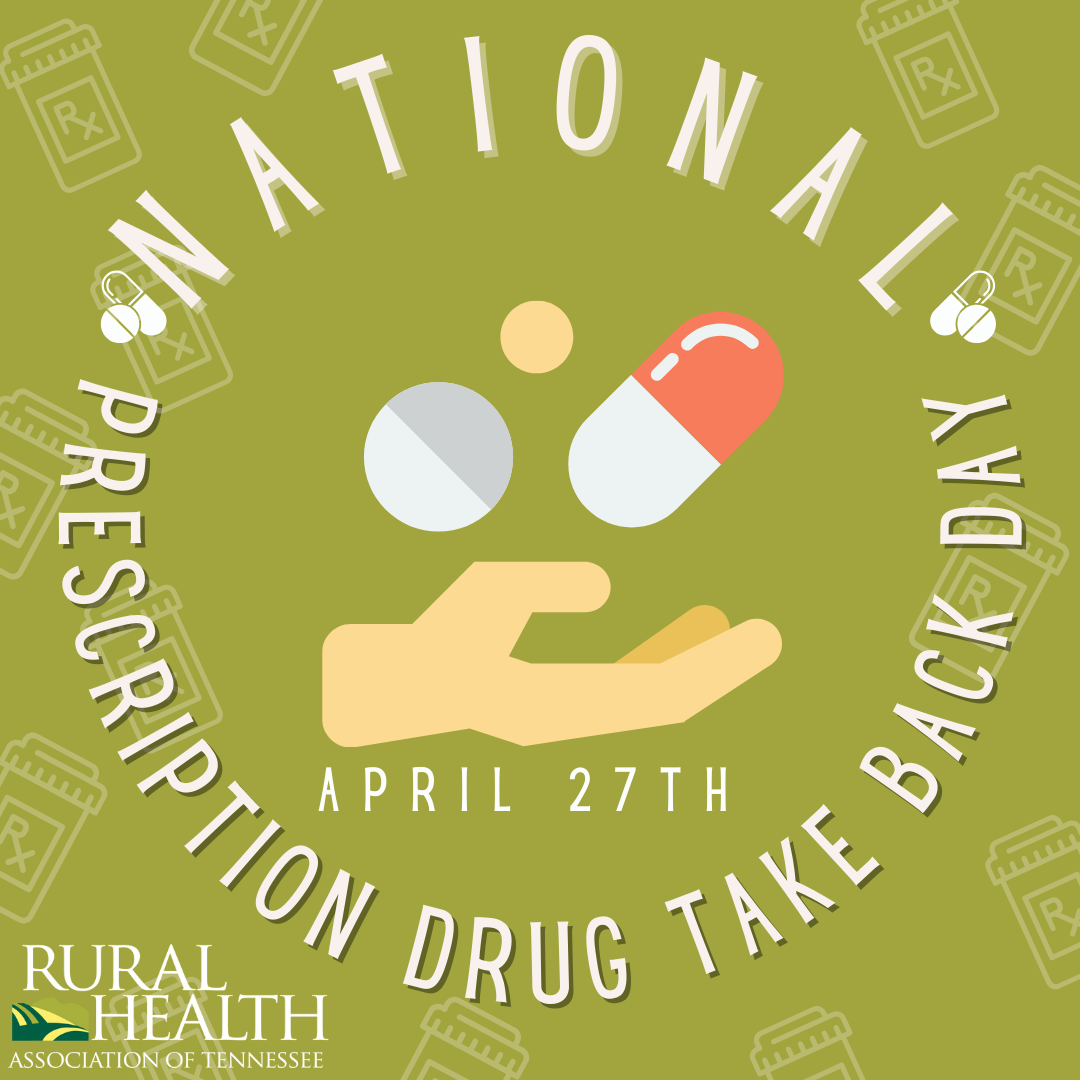 Prescription Drug Takeback Day plays a crucial role in addressing the public health crisis of prescription drug abuse and misuse. Unused or expired prescription medications pose significant risks when left in homes, as they can be accessed by unauthorized individuals, including children, teenagers, and individuals with substance use disorders. Prescription Drug Takeback Day provides a safe and convenient way for individuals to dispose of these medications properly, reducing the likelihood of diversion, accidental ingestion, and environmental contamination.
Prescription Drug Takeback Day plays a crucial role in addressing the public health crisis of prescription drug abuse and misuse. Unused or expired prescription medications pose significant risks when left in homes, as they can be accessed by unauthorized individuals, including children, teenagers, and individuals with substance use disorders. Prescription Drug Takeback Day provides a safe and convenient way for individuals to dispose of these medications properly, reducing the likelihood of diversion, accidental ingestion, and environmental contamination.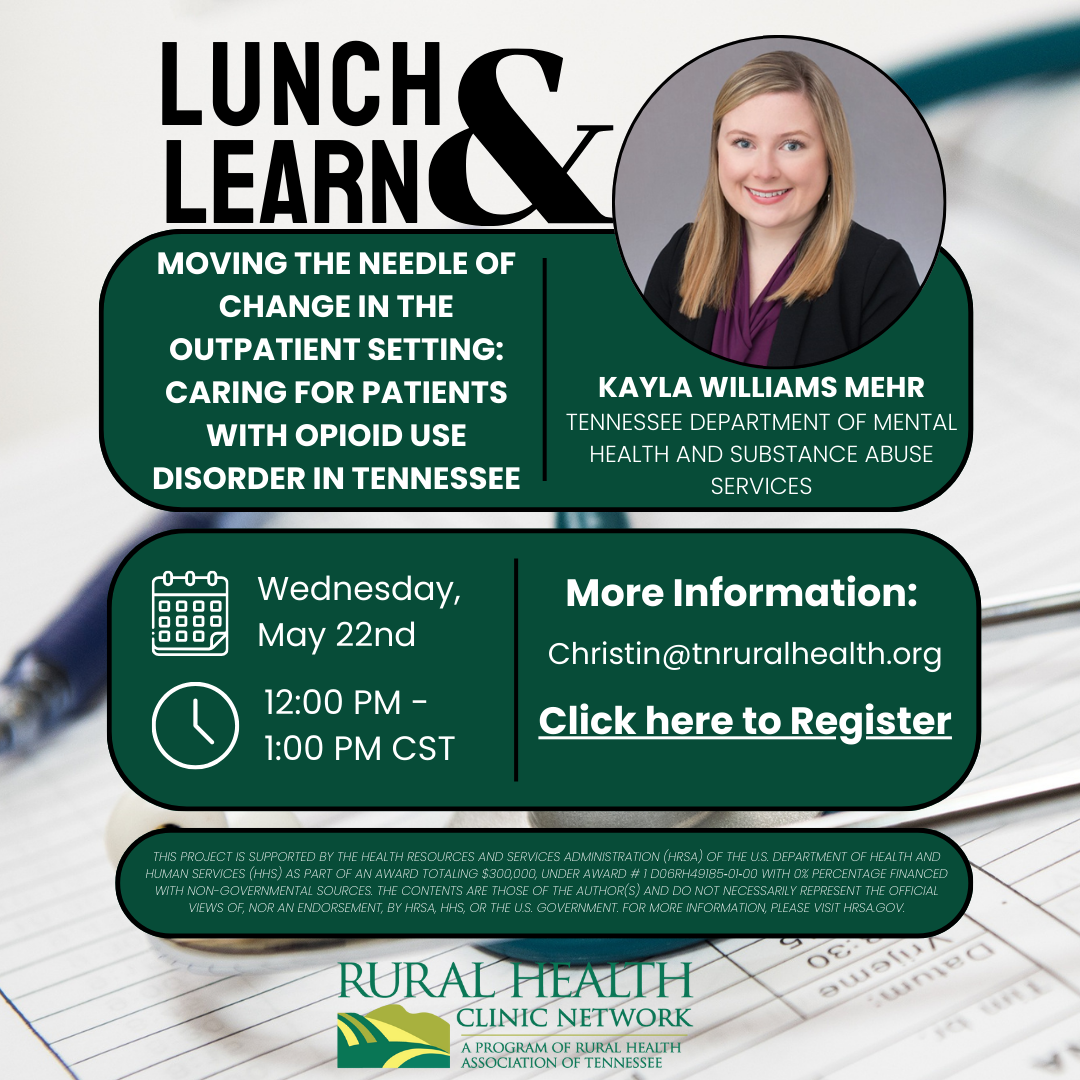 May 22, 2024 RHC Lunch and Learn: Moving the Needle of Change - Caring for Patients with Opioid Use Disorder in Tennessee
May 22, 2024 RHC Lunch and Learn: Moving the Needle of Change - Caring for Patients with Opioid Use Disorder in Tennessee 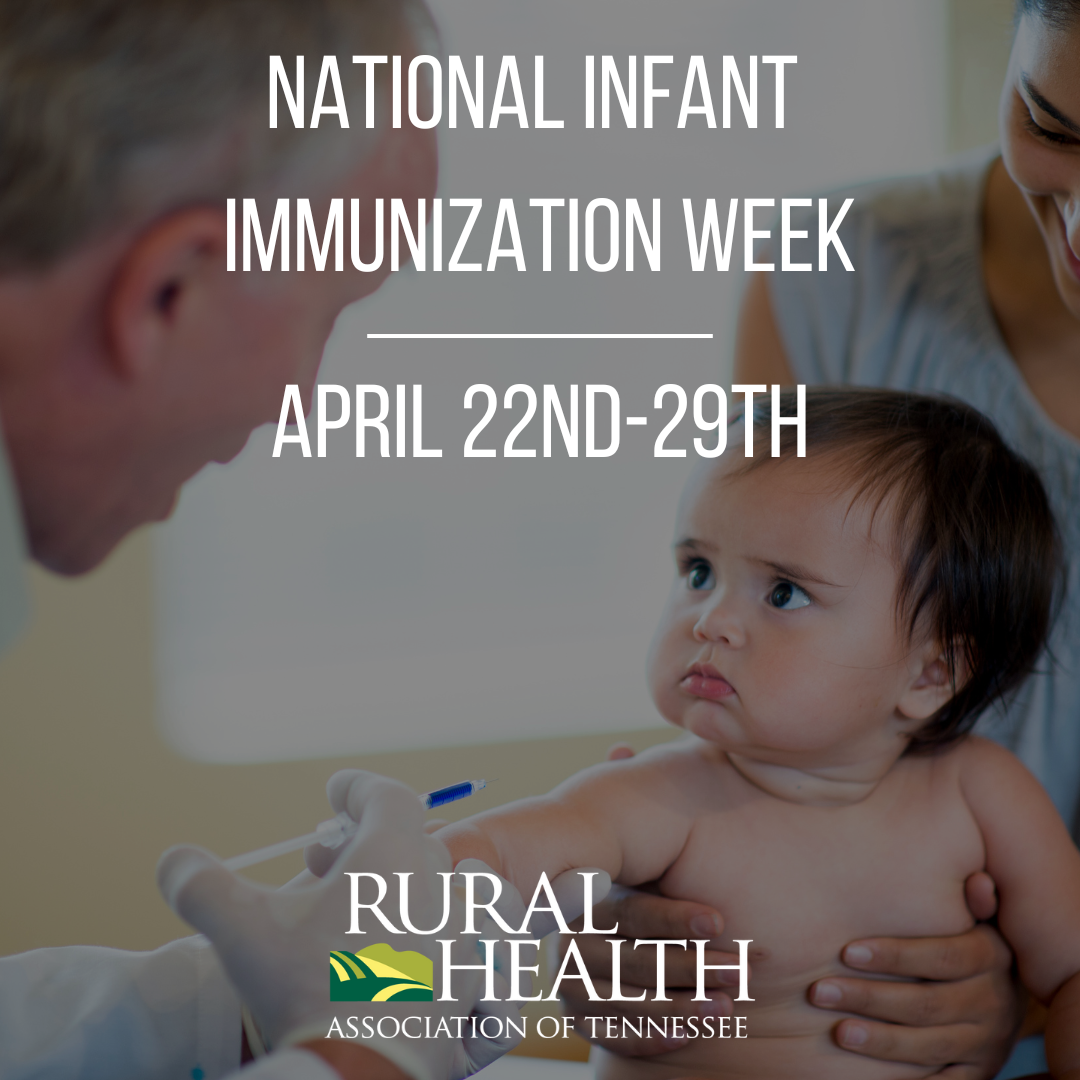 National Infant Immunization Week (NIIW) is a vital campaign that emphasizes the significance of timely vaccination for infants and young children. Immunization during early childhood is crucial for protecting against vaccine-preventable diseases, safeguarding individual health, and promoting community immunity. NIIW provides a dedicated platform to raise awareness about the importance of infant immunization, educate parents and caregivers about vaccination schedules, and encourage healthcare providers to prioritize immunization efforts.
National Infant Immunization Week (NIIW) is a vital campaign that emphasizes the significance of timely vaccination for infants and young children. Immunization during early childhood is crucial for protecting against vaccine-preventable diseases, safeguarding individual health, and promoting community immunity. NIIW provides a dedicated platform to raise awareness about the importance of infant immunization, educate parents and caregivers about vaccination schedules, and encourage healthcare providers to prioritize immunization efforts.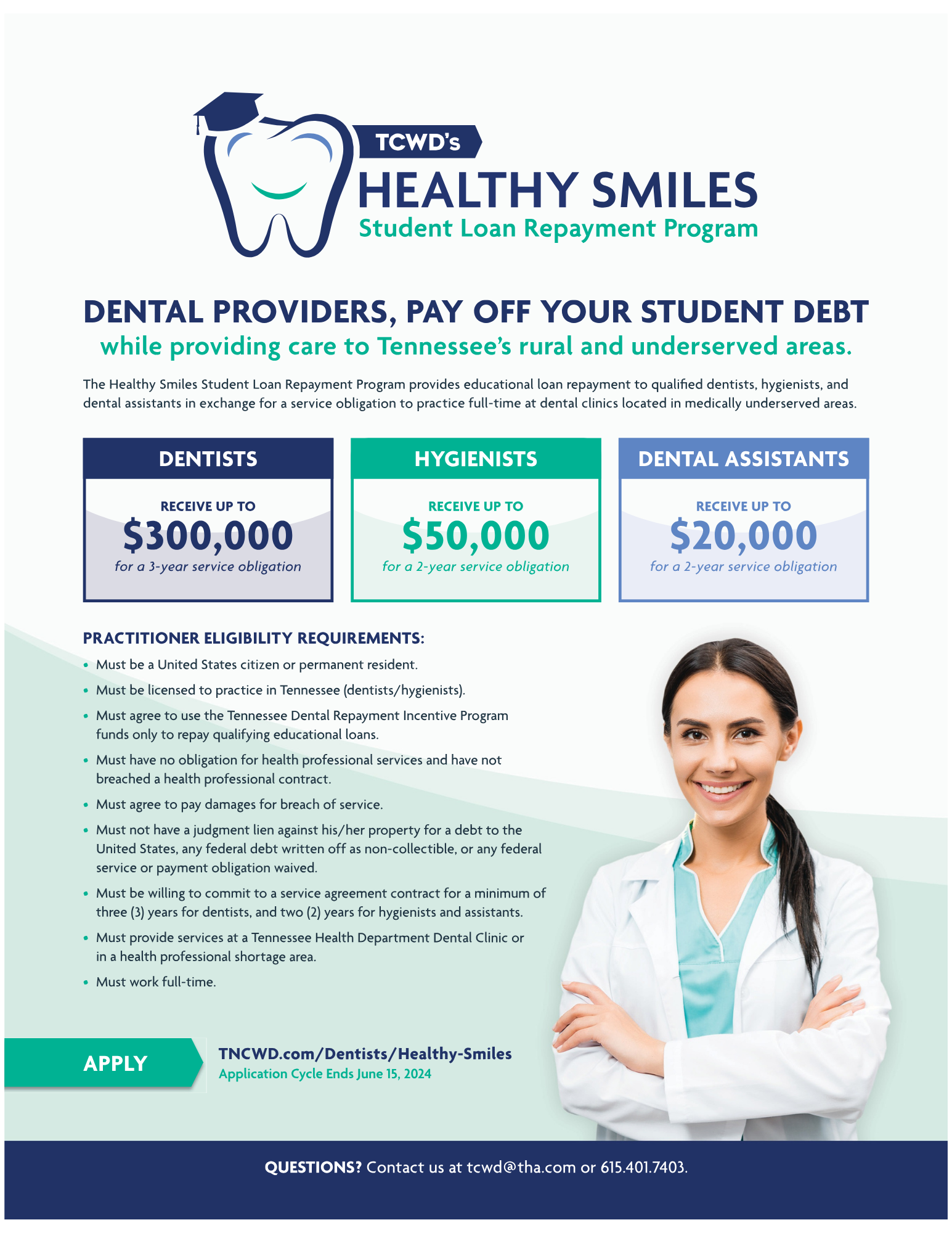 The Healthy Smiles Student Loan Repayment Program provides educational loan repayment to qualified dentists, hygienists, and dental assistants in exchange for a service obligation to practice full-time at dental clinics located in medically underserved areas.
The Healthy Smiles Student Loan Repayment Program provides educational loan repayment to qualified dentists, hygienists, and dental assistants in exchange for a service obligation to practice full-time at dental clinics located in medically underserved areas.  Tuesday, April 9th, we had the opportunity to host our regional event at Paris Landing State Park and see our west region members. Members had the opportunity to h
Tuesday, April 9th, we had the opportunity to host our regional event at Paris Landing State Park and see our west region members. Members had the opportunity to h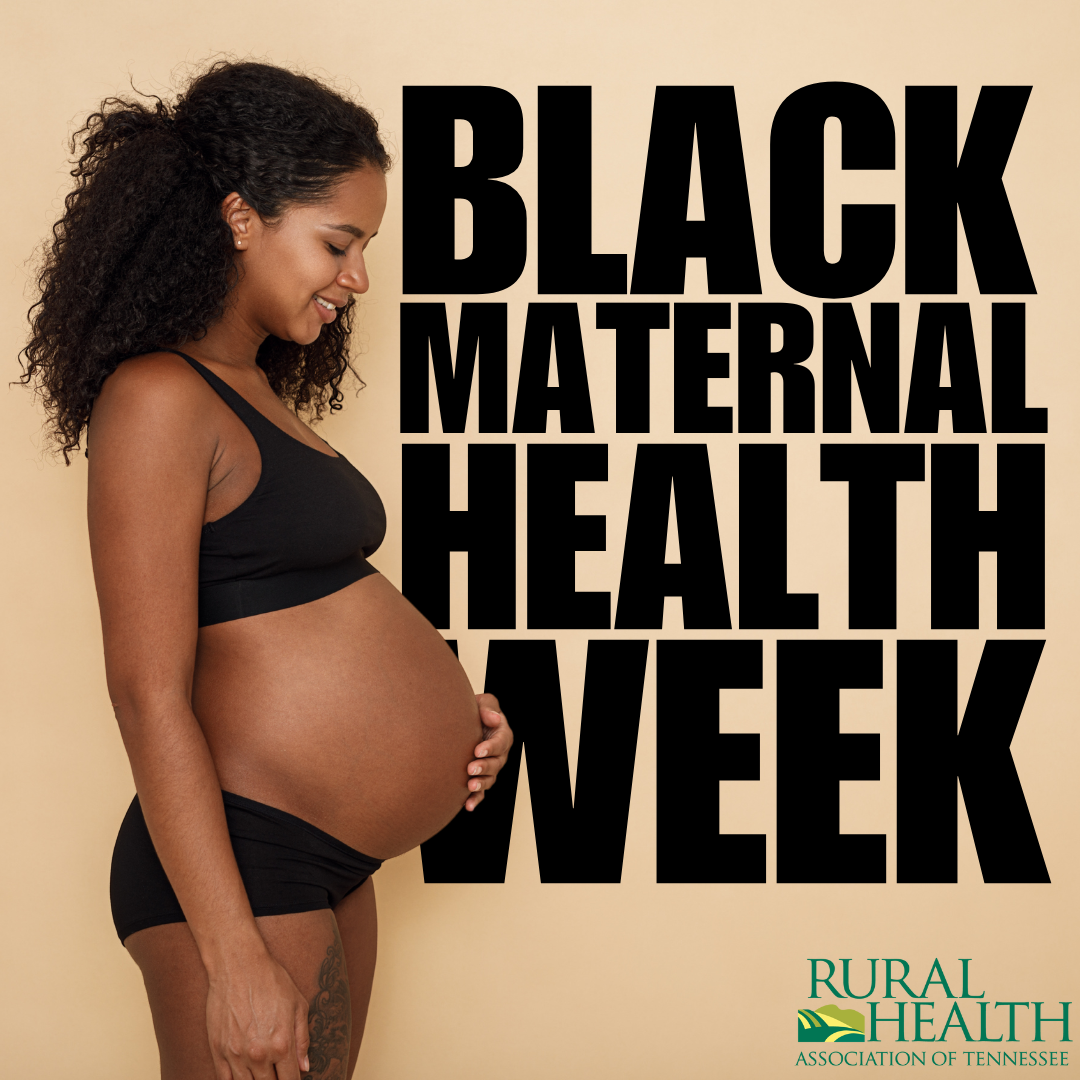 Black Maternal Health Week (BMHW) is a critical initiative aimed at addressing the significant disparities in maternal health outcomes experienced by Black women in the United States. This dedicated week takes place from April 11th-17th and raises awareness about the disproportionate rates of maternal mortality and morbidity among Black women and advocates for policies and interventions to improve Black maternal health outcomes. In rural areas, where access to quality healthcare services is often limited and disparities in healthcare delivery are exacerbated, BMHW holds particular importance in highlighting and addressing the unique challenges faced by Black mothers.
Black Maternal Health Week (BMHW) is a critical initiative aimed at addressing the significant disparities in maternal health outcomes experienced by Black women in the United States. This dedicated week takes place from April 11th-17th and raises awareness about the disproportionate rates of maternal mortality and morbidity among Black women and advocates for policies and interventions to improve Black maternal health outcomes. In rural areas, where access to quality healthcare services is often limited and disparities in healthcare delivery are exacerbated, BMHW holds particular importance in highlighting and addressing the unique challenges faced by Black mothers.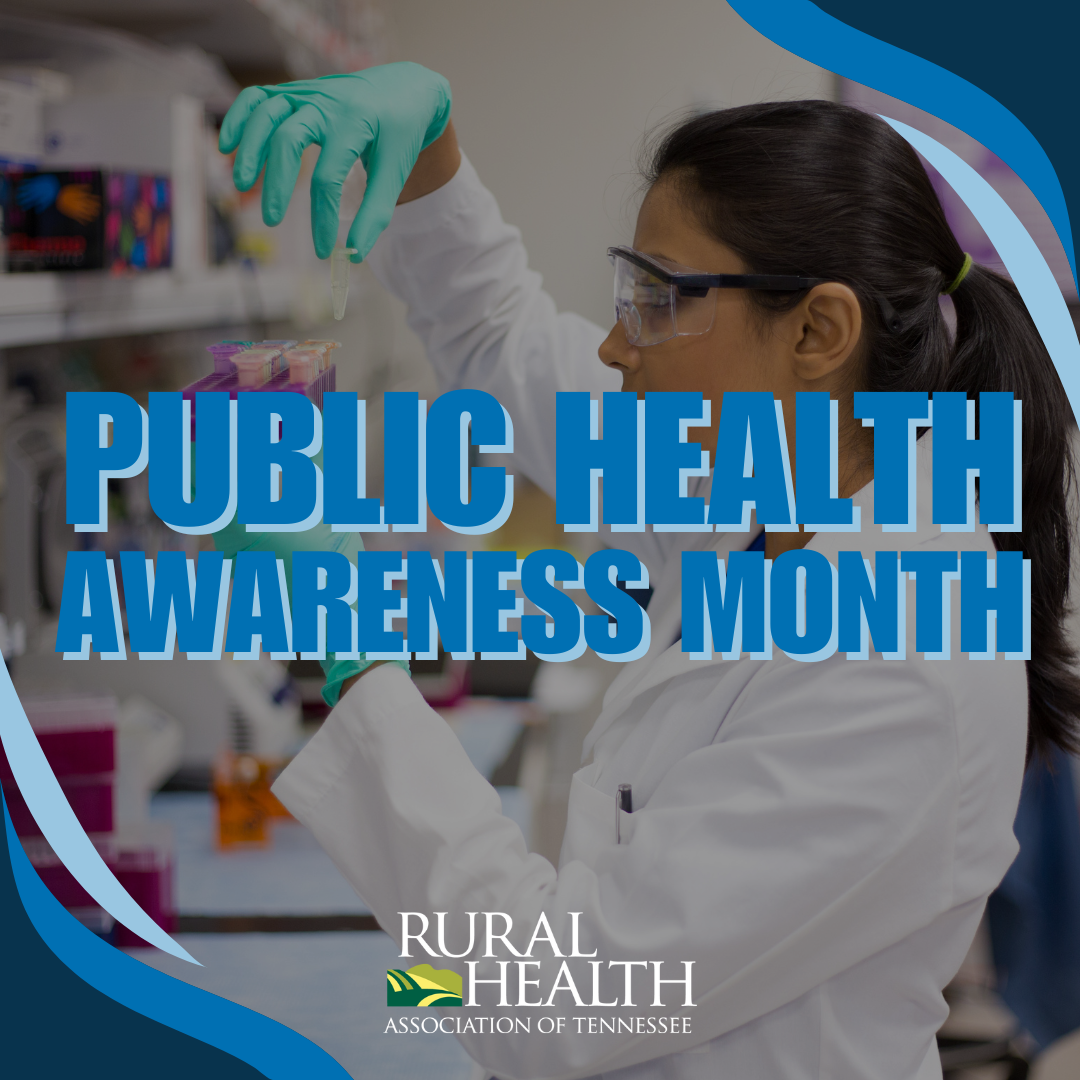 Public Health Awareness Month holds particular significance for rural areas, where access to healthcare services and health education can be limited. In rural communities, residents often face unique challenges such as geographic isolation, limited healthcare infrastructure, and socioeconomic disparities, which can contribute to poorer health outcomes. Public Health Awareness Month provides a crucial opportunity to address these disparities by raising awareness about prevalent health issues and promoting access to healthcare resources in rural areas.
Public Health Awareness Month holds particular significance for rural areas, where access to healthcare services and health education can be limited. In rural communities, residents often face unique challenges such as geographic isolation, limited healthcare infrastructure, and socioeconomic disparities, which can contribute to poorer health outcomes. Public Health Awareness Month provides a crucial opportunity to address these disparities by raising awareness about prevalent health issues and promoting access to healthcare resources in rural areas.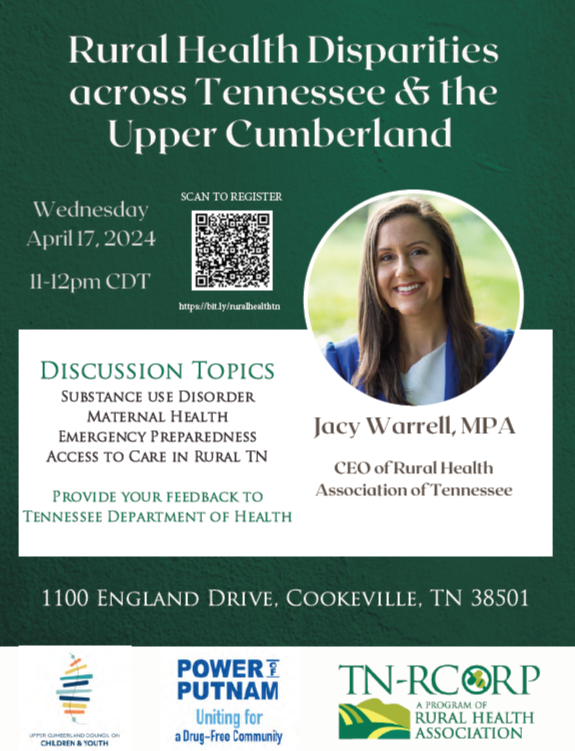 Join us on April 17 from 11AM - 12PM for an informative lunch session hosted by Upper Cumberland Council on Children and Youth, Rural Health Association of Tennessee, and Power of Putnam. Discussion topics will cover substance use disorder, maternal health, emergency preparedness, and access to care in rural TN. Don't miss out on this exciting opportunity to grow and learn together!
Join us on April 17 from 11AM - 12PM for an informative lunch session hosted by Upper Cumberland Council on Children and Youth, Rural Health Association of Tennessee, and Power of Putnam. Discussion topics will cover substance use disorder, maternal health, emergency preparedness, and access to care in rural TN. Don't miss out on this exciting opportunity to grow and learn together! The Rural Health Association is offering funding for
The Rural Health Association is offering funding for